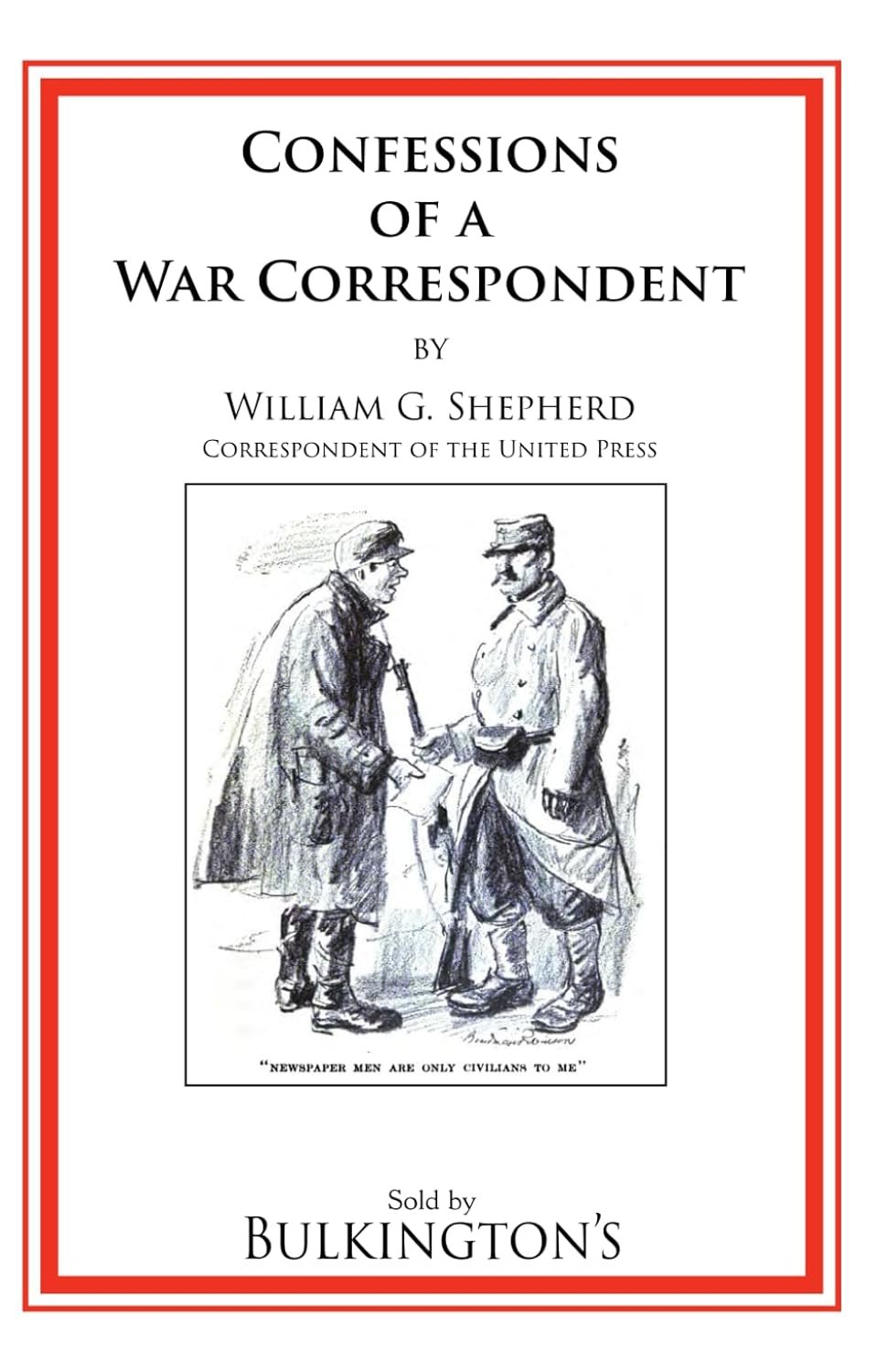
The Tariff Controversy in the United States 1789-1833: With a Summary of the Period Before the Adoption of the Constitution by Orrin Leslie Elliot, PhD, was originally published in 1892. It is altogether a scholarly monograph, formerly published by Leland Stanford Junior University Press. It is a well researched chronicle of the history of the British mercantile system, tariffs, protection, and international trade in the colonies and the early American Republic. It covers the earliest colonial period and ends with the Nullification Crisis of 1833, when Andrew Jackson faced off against South Carolina and John Calhoun over the issue of tariffs, the National Bank, and secession.
What you will find is that every single President supported tariffs. George Washington, John Adams, Thomas Jefferson, James Madison, James Monroe, John Quincy Adams, and Andrew Jackson all supported tariffs. Some of them, like James Madison, really preferred 'free trade,' but understood it was not possible in practice. On nearly every page there are direct quotes from the Founders, from Congressional proceedings, on the issue of tariffs, protection, and free trade. The author painstakingly gives quote after quote from all sides of the issue.
What becomes apparent is that the Early American Republic could not have survived without tariffs and protection, because Great Britain at the time was powerful and sought to commercially dominate American markets. The author demonstrates that the Founders came to understand this quite quickly, and it was one reason why they moved past the Articles of Confederation to create a stronger Federal government that could regulate domestic and international trade.
Since the issue of free trade vs. protection has become extremely relevant today, this book brought back to the reading public. We will conclude with two quotes from the book, from the Founders:
“Much indeed it is to be wished, as I conceive, ... that no regulations of trade, that is to say, no restrictions on imposts whatever, were necessary. A perfect system is the system which would be my choice. But before such a system will be eligible, perhaps, for the United States, they must be out of debt; before it will be attainable, all other nations must concur in it. Whilst any one of these imposes on our vessels, seamen, etc., in their ports, clogs from which they exempt their own, we must either retort the distinction or renounce, not merely a just profit, but our only defence against the danger which may most easily beset us.”—James Madison
“[B]oth France and England have shown a constant disposition to take a selfish and partial advantage of us because of them, to turn them to the diminution or destruction of our own means of trade and strength. I hope we shall be the dupes no longer than we must. I would venture upon monopolies and exclusions, if they were found to be the only arms of defence against monopolies and exclusions.”—John Adams
This is a new edition of the public domain book that was originally published in 1892.
This new edition includes:
A new Foreword written by the publisher
Several footnotes illuminating the references made by the author.
New format, layout, typesetting.
Bulkington Book's mission is to build a bridge into the past, before film, television, copyright, and internet swallowed up the world. We found this story worthy of revival, and we hope you find it worth your while.
https://www.amazon.com/dp/1966777078
Our Substack Post, including the Foreword, can be read here:
https://bulkingtonbooks.substack.com/p/preface-to-mr-keeling
the original text can be found here on archive: https://archive.org/details/bolshevismmrkeel00keeluoft

The Perils of Amateur Strategy: As Exemplified by the Attack on the Dardanelles Fortress In 1915 is written by a decorated career soldier, Lt. General Sir Gerald Ellison, who fought in South Africa, and helped enact reform in the British Army after the Boer War. He served in WW1, and was the Quarter-Master General of the Gallipoli Front.
He has nothing but the highest praise for the brave soldiers who landed at Gallipoli. But his aim is to prevent another disaster like that from occurring. He writes with a detailed command of the facts about the inmost circle of British Imperial Grand Strategic decision making. He ultimately blames "amateurs" for going around the chain of command and undermining the entire war effort. He believes the war could have been won with far less loss of life, and more quickly, had different decisions been made.
This is a new edition of the public domain book that was originally published in 1919.
This new edition includes:
A reproduction of a long article originally published in The National Review entitled Lest We Forget—The Tragedy of the Dardanelles by a Flag Officer that the author published anonymously.
A new Foreword written by the publisher
A few photographs of the Gallipoli front.
Several footnotes illuminating the references made by the author.
New format, layout, typesetting.
Bulkington Book's mission is to build a bridge into the past, before film, television, copyright, and internet swallowed up the world. We found this story worthy of revival, and we hope you find it worth your while.
https://www.amazon.com/dp/1966777035
Our Substack Post, including the Foreword, can be read here:
https://bulkingtonbooks.substack.com/p/foreword-to-the-perils-of-amateur
the original text can be found here on archive: https://archive.org/details/perilsamateurstrategy

Confessions of a War Correspondent is a republication of the writings of forgotten American journalist, William G. Shepherd. He was a staff correspondent for the United Press, and this book describes Wartime Europe, from 1914 to 1916, just before America was brought into the war. It contains descriptions of the Western Front in France, in Poland in the Eastern Front, and down in Greece covering the forgotten Salonika front.
He exemplifies an old type of sunny American optimism that does not exist in modern journalism. The opening of the describes trying to get stories past the press censorship regimes of the Allies, Britain and France, and Italy, and the Entente, Germany and Austria Hungary.
This is a new edition of the public domain book that was originally published in 1917.
This new edition includes:
Several news articles on the war under Shepherd's byline that have never been published.
A short story written by his fellow journalist, about a soldier who nearly deserted.
Reproductions of his original sketches and drawings
Several footnotes illuminating the author's references.
New format, layout, typesetting.
Bulkington Book's mission is to build a bridge into the past, before film, television, copyright, and internet swallowed up the world. We found this story worthy of revival, and we hope you find it worth your while.
Our Substack Post, including the Foreword, can be read here:
https://bulkingtonbooks.substack.com/p/foreword-to-confessions-of-a-war

The War In The Garden Of Eden, is a first person narrative about the British Army in Mesopotamia. That campaign saw fighting in Baghdad, Ramadi, and Tikrit, cities that would be recognizable to anyone who served, or studied the history of the recent US engagement in Iraq.
There are vivid descriptions of riding Rolls Royce Phantoms in the desert, taking boats up the river in Basra, and picturesque description of life in Baghdad.
What makes this book truly exceptional is it's author, Kermit Roosevelt, the son of President Theodore Roosevelt. He writes well, and scattered through the pages are allusions to poems and books. It was published a year after the death of his father, President Theodore Roosevelt. At the end of the book, he is sent to France where he reunites with his brother, who also served. There is a cast of characters in the book, from Australian poets and British archaeologists to a short cameo with Lawrence of Arabia. This book deserves to be taught alongside All Quiet on the Western Front.
This is a new edition of the public domain book that was originally published in 1919.
This new edition includes:
We included several newspaper clippings about the Roosevelt family just before World War One, including stories on Kermit's marriage to his wife, and their reception by the King of Spain.
Maps of the campaign and theater of operations.
Many pictures of the campaign, including Australian camel troops, Rolls Royce Phantoms outfitted for desert war, and reproductions of most of the photos in the original manuscript.
A new Foreword written by the publisher.
Several footnotes illuminating the references made by the author.
New format, layout, typesetting.
Bulkington Book's mission is to build a bridge into the past, before film, television, copyright, and internet swallowed up the world. We found this story worthy of revival, and we hope you find it worth your while.
Our Substack Post, including the Foreword, can be read here:
https://bulkingtonbooks.substack.com/p/foreword-to-the-war-in-the-garden
the original text can be found here on archive: https://archive.org/details/waringardenofede00roos

First Person narrative about the Second Seminole War. Second Lieutenant Woodburne Potter served with Major General Gaines. He was wounded at the battle of Camp Izard.
He tells the story of the lead up to the war, with the Seminoles unable and unwilling to comply with the Treaty of Payne's Landing, the negotiations for their removal, and the beginning of the conflict. He tells of the battle where Major Dade lost his life. He chronicles bravery on both sides.
Included in this volume are several woodcuts from the time period. Also included is a letter written by Thomas Jefferson, on Indian Policy, that is illustrative of the Federal Government's approach to every native tribe. Also included is a broadsheet containing many first person narratives of civilians who survived the Seminole attacks on farms and ranches.
Our Substack Post, including the Foreword, can be read here:
https://bulkingtonbooks.substack.com/p/publishers-preface-to-war-in-florida
the original text can be found here on archive: https://archive.org/details/warinfloridabei00pottgoog

Harold Begbie wrote this book, originally published in 1909, about the Salvation Army's ministry in working class neighborhoods in London. He describes several stories of recovery from alcoholism through a spiritual experience that allowed people to connect to a Higher Power.
He follows several individuals, such as a renowned prize fighter, a down and out 'rag picker,' and several others. He describes the Salvation Army, as it used to be, when it ministered in bad neighborhoods and helped alcoholics and criminals change the course of their lives.
This edition includes substantial footnotes for the dated references and allusions Mr. Begbie makes. It should be of interest to anyone interested in recovery history.
Our Substack Post, including the Foreword, can be read here:
https://bulkingtonbooks.substack.com/p/publishers-foreword-to-twice-born
the original text can be found here on archive: https://archive.org/details/twicebornmen0000haro_g4e4/page/n5/mode/2up

Bolshevism: Mr. Keeling's Five Years in Russia is a first person narrative told by a British lithograph and photography tradesman who took a job in Russia just before World War One began. He describes Russian society under the Tsar, the impact of the war, and the disastrous consequences of the Bolsheviks taking power.
He witnessed the first liberal democratic revolution in February 1917, and the high hopes and idealism that took hold of the people. He saw firsthand how the Bolsheviks systematically undermined the Provisional Government, and then took power in the October Revolution. He describes how private property rights were assaulted, and how theft, lying, and black markets took over the economy. He describes how the Bolsheviks turned against local democracy and the newly elected Constituent Assembly, and did all they could to make the situation worse so they could take over. Realizing he will not long survive the situation, either he will starve to death like many did, or be executed by Red Guards, he makes an escape north through Finland.
This is a new edition of the public domain book that was originally published in 1919.
This new edition includes:
Mr. Keeling's remarks from a talk he gave in England after he came home, included as an appendix.
A new Foreword written by the publisher,
Several footnotes illuminating the references made by the author.
New format, layout, typesetting.
Bulkington Book's mission is to build a bridge into the past, before film, television, copyright, and internet swallowed up the world. We found this story worthy of revival, and we hope you find it worth your while.
Paperback: https://www.amazon.com/dp/B0DQ8TC2MT
Kindle: https://www.amazon.com/dp/B0DQVJT9SK
Our Substack Post, including the Foreword, can be read here:
https://bulkingtonbooks.substack.com/p/preface-to-mr-keeling
the original text can be found here on archive: https://archive.org/details/bolshevismmrkeel00keeluoft







